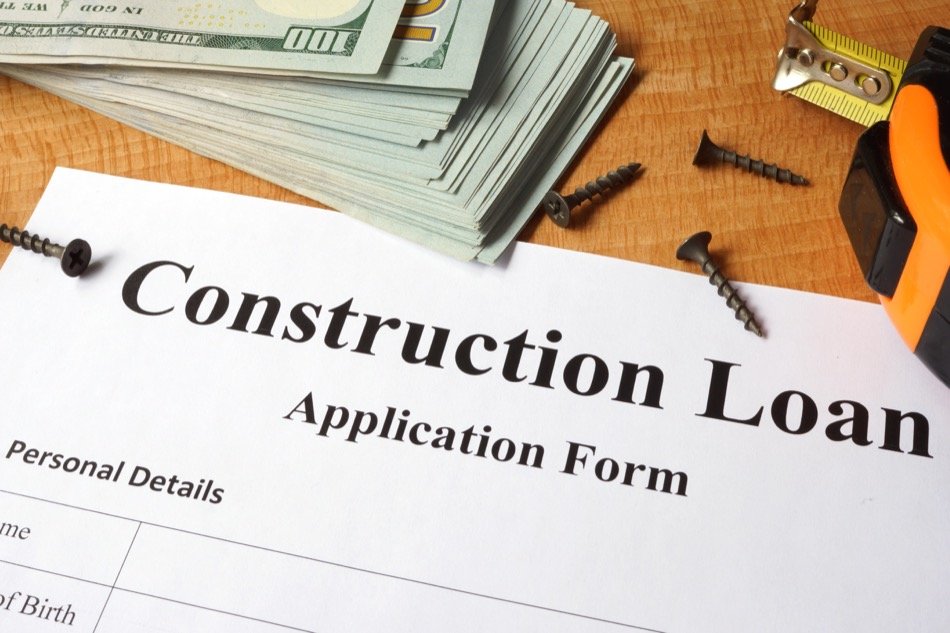5 Tips for Securing a VA Construction Loan
Posted by Lauren Schneider on Monday, May 25th, 2020 at 10:09am.
 Those who qualify for a traditional VA loan would be wise to pursue it. Not only does the VA loan offer some of the most attractive terms available, but it's also relatively flexible and accommodating of different types of homeowners. That being said, there is a key restriction when it comes to the condition of the property, one that can make it difficult to secure a home construction loan. Find out more about the conditions of these loans and how veterans can still secure one for themselves.
Those who qualify for a traditional VA loan would be wise to pursue it. Not only does the VA loan offer some of the most attractive terms available, but it's also relatively flexible and accommodating of different types of homeowners. That being said, there is a key restriction when it comes to the condition of the property, one that can make it difficult to secure a home construction loan. Find out more about the conditions of these loans and how veterans can still secure one for themselves.
For informational purposes only. Always consult with an attorney, tax, or financial advisor before proceeding with any real estate transaction.
Calculate the Cost of Repairs
Ideally, the VA wants lenders to finance a home in relatively good condition so veterans and their families can live somewhere safe. This is not to say there are no options available should a veteran wish to buy a fixer-upper, but if the cost of repairs is exceptionally high, then it may not be worth the hassle. Lenders may be more inclined to deny an application under these circumstances, so it may take some effort on the part of the homeowner.
Understand the Loans
Should a veteran decide to move forward, they need to know the types of loans available:
- Renovation: Renovation loans allow veterans to bundle the cost of their premium with the cost of repairs.
- Supplemental: Similar to a second mortgage, a supplemental loan allows homeowners to make basic upgrades to their properties.
- Cash-out: This loan allows veterans to convert liquidity to cash for the sake of renovations.
Veterans should know that supplemental loans may add a percentage of the renovations costs (up to 2%) alongside the standard loan origination and Funder's Fee.
Estimate the Work
Veterans should not only consider the cost of the repairs but also the type of repairs before deciding which loan to apply for. In general, lenders are often more willing to work with veterans making energy-efficient upgrades. However, the cut-off limit is $6,000 for standard loans and $3,500 for a supplemental loan. Additionally, the owner may also need to apply for a commitment certificate from the VA.
Prepare for a Compliance Inspection
The government would prefer veterans to purchase homes that are stable and safe. Veterans who need more than $3,500 will need to show the improvements will be worth it—both for the owners and the general neighborhood.
A compliance inspection will provide the value statement from the property that lenders will use for final approval. Homeowners are more likely to receive approval if they're looking at a run-down home in a relatively wealthy area. Lenders will consider the worth of the home after the repairs are completed as a way to make their decisions.
Get Ready to Wait
A regular home construction loan may allow the homeowners to reside on the property until repairs are made, but this is not the case with a VA home construction loan. Buyers taking out these loans will need to consider the length of the repairs, as construction is often heavily delayed by anything from poor weather to optimistic project management. It's extremely important for buyers to have a reliable backup if they need to wait to move in.
VA home construction loans can be a great option for veterans all across the US. However, it may take a little extra effort to secure one based on its restrictions.
For informational purposes only. Always consult with an attorney, tax, or financial advisor before proceeding with any real estate transaction.
